|
I just noticed the date on my last post and realized it’s been quite some time since I’ve written an update. I’m sure some of you were wondering what’s become of the McKibben family. Well, the reason for my lack of attention to the blog is simple. After nearly a year since completing my last novel, I’ve started writing again.
Just this morning, I went over 20,000 words in my newest effort, which is tentatively called A More Perfect Union. If you’ve read my previous works (and if not, why?), you’ll think of me as a mystery, suspense, political intrigue sort of writer, but this book is going to be quite different. A More Perfect Union is a historical romance story set in Philadelphia during the 1787 drafting of the United States Constitution. The main character is Sara Hamilton, a mysterious young Irish immigrant who owns a boarding house where two of the convention delegates — one from Connecticut and one from South Carolina — are staying. I’m not one of those writers who can churn out 2,000 words a day. I labor over every sentence, every paragraph. I’m pleased when I get 400 words that I’m satisfied with in a session. Still, I don’t want to forget about the blog altogether, so I will try to post from time-to-time. So, my update is: All is well, food is good, weather is hot but dry, made many friends, spent more on furniture than intended, wine is cheap so wine every night, like our new doctor, like our new veterinarian, dogs love it here, more to come.
0 Comments
I don’t know what it’s like in other parts of Spain, but in Andalucía siesta is a very real thing. A quick trip into town to run an errand could be a complete waste of time between the hours of two and five PM. Some restaurants are open, and the Mercadona (supermarket) is open, but almost everything else is closed. At five o’clock, the town comes alive again and continues to go strong well into the night. We’ve adjusted to siesta now and can see the benefits of it: reduced stress and increased happiness. Perhaps siesta is something the rest of the world should adopt.
Sundays in Andalucía are also quite different from the US. Except for some restaurants, almost everything (including the Mercadona) is closed for the day. In the states, Sunday was often our day for shopping, but here, not even IKEA is open. We are adjusting, learning to plan ahead for groceries or other needs that might arise on Sunday. Another reality of Spain is that it’s very old. The streets are so narrow that your Toyota Camry is going to feel like a stretch limo on some turns and you’ll shy away for most parking spaces. When we first got to Spain, we had rented a Volkswagen Tequon, not a gigantic car by any means. Still, it was uncomfortably large in Mijas so we exchanged it for slightly smaller Nissan while we looked for a car to purchase. Even the Nissan was bigger than we wanted so we soon bought a Peugeot 207. It small, maneuverable, and fits into almost any parking space. The manual transmission and diesel engine are great on the hills and very fuel efficient. Coming from Florida, we were accustomed to hot weather. Now that it’s July, it has gotten quite hot here in the valley, most days reaching the upper 90’s. But, the humidity is nowhere close to Florida and it hasn’t rained in almost sixty days, so, all-in-all, it’s a pleasant change. We’ll see what winter is like in a few months. Our friends say it can get cold but not freezing. Because of the “knock-on-wood” principal, I have been reluctant to write about the “six box saga” until now. The saga was resolved last week (mostly), so now, I am free to talk about it. It began early in April when, during our estate sale, Celia and I separated some things that we wanted to ship to Spain. We had been contacted by a company that promised they could provide door-to-door shipping at a fixed price per pound, plus they would handle all of the customs paperwork. Worry free, right?
Worry free, NOT!! After approximately thirty phone calls to UPS, getting new documents that UPS required (including a copy of our flight itinerary), Spanish customs still wouldn’t release our packages. Finally, I hired a local attorney who spoke English and she was able to file the correct documents within hours. After 17 days in a customs warehouse in Barcelona, our household items were finally on their way to Malaga. But, there was one more problem. As I discussed in an earlier post, through a stroke of magnificent luck, we had secured a permanent home much sooner than expected. Now, our packages were headed to the temporary address in Mijas and UPS refused to change the destination. A representative in Spain told me that they would not change the destination until they had attempted to deliver four times at the old address. (Even though that would mean some poor driver would have to climb five flights of stairs.) Finally, a representative at UPS International in the US (thank you, Anna) understood the situation and got some cooperation from UPS Spain. So, everything was delivered last week. The boxes were in rough shape, but the contents were undamaged (except for a minor problem with this computer). We had to pay €118 import duty, even though the shipping agent had assured us it would be duty-free. Needless to say, we will not be recommending White Gloves Express to anyone. In my last post, I hinted that a magnificent stroke of luck solved our housing problem. The word “luck” doesn’t even begin to describe the series of events that led us to this beautiful three-bedroom, two bath home in the campo (countryside) a mile or two outside of Alaurin el Grande. If I wrote this story into one of my novels, it probably wouldn’t be believable.
As I mentioned in the earlier post, Mijas Pueblo, where our temporary residence was located, is a very beautiful white village high on the side of a mountain overlooking the Mediterranean, but the almost daily drive to Alhaurin was going to be difficult, so we had decided to look for a closer place. That’s when things started to break our way. Bright and early on our first Monday morning in Spain, we drove the long and safe route to Alhaurin for a meeting with Susana Santos of Banco Sabadell to open an account so we could transfer in funds from the U. S. We needed to purchase a car as soon as possible to get out of the more expensive rental car. And Celia wanted to acquire a new horse to replace the one she’d sold in Florida. Also, getting local cell phones was a high priority and we would need a local account to arrange payment. When we left the bank, we headed to a cell phone store a couple of blocks away. We had to wait in line for a short time while a woman in front of us finished her business with the clerk behind the counter. Finally, she turned to leave and Celia and I stepped to the counter. “Do you speak English?” Celia asked. “No English,” the clerk responded. The woman who had been in front of us turned and came back. “I’ll translate for you,” she said. Natasha was born in Canada, but had lived in Alhaurin for many years. She worked for a dental clinic nearby. As the three of us were leaving the cell phone store, we mentioned to Natasha that we were looking for a place in Alhaurin. She pointed to a building across the street. “My mom owns that real estate agency,” Natasha said. “Let’s go see her.” Natasha’s mom, Zhilla, was eager to help. We explained that we were most interested in finding a small finca (farm) where we wouldn’t have to worry about the dogs, but would consider an apartment in town if there was nothing else. Zhilla explained that the only finca she had available was a little above our budget, but that we should go look at it anyway. About that same time, a couple from Scotland came in looking for a finca as well. We all piled into two cars and went to look at the property. Both couples liked the house, but the Scots offered to completely renovate the kitchen for the owner and there was no way we were going to compete with that for a property that was already over our budget. But Antonio, the finca’s owner, liked us and wanted to help. He made several calls to his friends to see if anyone had a house they were willing to rent. One of those friends was Cristobol Garcia and by four o’clock that afternoon, we had this wonderful home. The property manager in Mijas was happy to let us out of that lease with just the forfeiture of our deposit. A happy ending for everyone, but also, the realization that if we’d gotten to the cell phone store five minutes earlier, or five minutes later, none of this would have happened. One of the biggest challenges in relocating to Spain was arranging a place to live without actually being in the country. Our initial goal was simple. Find an apartment or house near Alhaurin el Grande that accepted pets and that we could lease for six months. We wanted a lease that would commence on May 1, but accepted the fact that we might have to pay for April even though we wouldn’t be in Spain. That would give us time to find a long-term home once we were here. We monitored several websites every day. Among others: Kyero.com Idealista.com Propertyalhaurin.com Thinkspain.com We left messages and contacted agents only to find that the listing had already leased, or they didn’t accept pets, or they wouldn’t do a short-term lease. The six-hour time difference worked against us, as well. Twice we were told by an agent that the apartment was ours, only to find out that it was leased to someone else before we send a deposit. We also considered a long-term Airbnb if all else failed. Then, we started getting lucky. A friend in Alhaurin put us in contact with a property manager in Mijas Pueblo (I’ll call him Carlos). We checked the map. Mijas Pueblo was only twelve kilometers from Alhaurin, a seemingly reasonable drive while we searched for a place in our desired area. Carlos came through right away. He found us a nice, 3 bedroom apartment overlooking the main square in the town, fully furnished, six-month lease, dogs OK. Mijas Pueblo turned out to be a spectacularly beautiful place, but not without a few problems.
We resigned ourselves to making the best of the situation while we focused more intently on finding a place in Alhaurin before our lease was up. Then, another magnificent stroke of luck came our way. Some images from Mijas Pueblo.
A lot has happened since my last post. Then, we were a few days away from departing Florida, Now, we are happily settled in Spain and the whirlwind of activity is beginning to slow down. And after a couple of weeks with no internet connection, I can bring readers up to date on our travels.
Perhaps the thing we were most anxious about was how our two Scottish Terriers, Duffy and Sammie, would handle sixteen hours in a crate in the cargo hold of a large airplane. Duffy, 11 years old, had never been crated and never traveled outside of Florida. Sammie, our 8 year-old rescue, had not been crated in years. We were scheduled to fly from Miami to Madrid, with a connection to Malaga, leaving Florida on May 3, and arriving in Malaga on May 4. We decided to leave Tampa a day early and spend the night in Naples, Florida. That would give Duffy and Sammie a chance to get accustomed to the crates and give us plenty of time to get to the busy Miami airport with time to spare on our departure day. As it turned out, Duffy didn’t mind the crate at all, but Sammie hated it. Both enjoyed “people watching” in the airport before time to go in the boxes and the Iberia Airlines staff were helpful in keeping the boys calm. The flight to Madrid was uneventful (all good flights are uneventful) and we arrived at 8:20 AM. Celia and I cleared customs in less than five minutes. The dogs and our stowed luggage would clear in Malaga so Duffy and Sammie didn’t get out of their crates for the three-hour connection time. We’d both slept some on the plane and felt good. A café-con-leche and pastry made us feel even better. At the gate waiting to board our short flight to Malaga, we saw the dog crates being loaded on the smaller jet. After a nine-hour leg from Miami to Madrid, the short flight to Malaga was a breeze. We deplaned and headed to luggage claim where we would retrieve our luggage and dogs and clear them through customs. The dogs seemed none-the-worse-for-wear and most happy to be out those boxes. We had paid all the fees and prepared the paperwork, so getting Duffy and Sammie legally into Spain should be a breeze. It was easier than a breeze. No one paid the slightest interest in looking at the documents we had been so careful about preparing. Finally, it was off to the car rental counter (we used EuropCar and they were excellent) to pick up the Volkswagen Tiguan we’d reserved. It was large enough to hold all of our luggage and dog paraphernalia. Four days to go. Last weekend, we completed the final stage of our estate sale. Artwork that didn’t sell is going to an auction house and everything else that didn’t sell was picked up by a charity group Saturday afternoon. The sale was a huge success. The house is virtually empty and we are staying with friends until we leave for Spain next week. Six months of preparation is almost complete.
When we returned to Tampa from Alhaurin el Grande in October, we had already made the decision that we wanted to live there permanently. Next, we set about learning the process for actually achieving such a move. US citizens can travel to Spain and stay 90 days with just a valid passport. Retiring in Spain, however, requires a special visa and the process for getting it takes some time and effort. Furthermore, we would need to free ourselves from most of our property and possessions, since the cost of moving them would be prohibitive. Our early research had indicated the visa process could take six to nine months, so we decided that we wouldn’t start selling things until we had secured the visa. In reality, the process was a lot less daunting than we expected, but, once approved, the visa holder has just 90 days to use it, or start the process over again. So, the window for liquidating everything would be tight. The visa application must be made in person at any of the eight Spanish Consulates in the US, or at the Embassy in Washington. Since we live in Florida, we were directed to apply at the Consulate in Miami. Below is a list of the documentation required with the application. Note that these requirements may change from time-to-time, so check with Consulate to be sure.
We got our approved visas in just over three weeks. When I glanced at the calendar this morning, I realized that, in just twenty-three days, Celia and I along with our beloved Scottish Terriers Duffy and Sammie, will begin a new life in another sunny part of the world. Having lived in Tampa, Florida, for the last fifteen years, we’re accustomed to sunshine, warm temperatures, and high humidity. But, on May 2, we leave the USA for retirement in the sunny south of Spain where we will continue to enjoy abundant sunshine, warm temperatures, and maybe a little less humidity.
Why are you moving to Spain? We’ve been asked this question dozens of times by friends, relatives, and people we’ve only just met. Sometimes the question is mere curiosity, but other times, it’s some combination of surprise, shock, and fear for our safety. Whatever the reason for the question, the answer is complicated, so I have decided to use these posts to bring everyone up to date. The notion of retiring somewhere other than in the USA germinated from a tiny seed planted by a friend several years ago during an annual Thanksgiving gathering. The friend mentioned an acquaintance who had retired to Uruguay and found it to be quite pleasant and much less expensive than the USA. The idea appealed to me immediately. I knew our retirement resources were limited, especially after the financial crisis, but I also knew that neither Celia or I wanted to give up the things we most enjoyed. For me, that was: food, wine, travel, occasional golf, and time to write. For Celia, it meant having a horse and enjoying equestrian activities. So, began a four-year odyssey of research, connecting with people, traveling, and soul searching; first to determine if it was something we really wanted to do, and then to figure out where we wanted to wind up. The last place we visited was the town of Alhaurin el Grande, in the province of Malaga in Spain. After three days there, Celia and I looked at each other and nodded. This would be home. The list of places we considered is long: Uruguay, Mendoza Argentina, Cuenca Ecuador, Panama, Costa Rica, San Miguel de Allende Mexico, Ireland, Granada Spain, Murcia Spain. For one reason or another, each of these failed to check every box. But, Alhaurin el Grande came very close to checking all our boxes:
Within a few days of returning to Tampa, we began the process of getting ourselves from a home in Florida to a home on the Costa del Sol. Initially, we figured it would take about six months, and that turned out to be the case. In my next post, I’ll explain the paperwork and the logistics involved in making such a move. |
Fred McKibbenThoughts and information on why Fred and Celia chose to live in Spain, and how they went about getting there. Archives
August 2018
Categories |
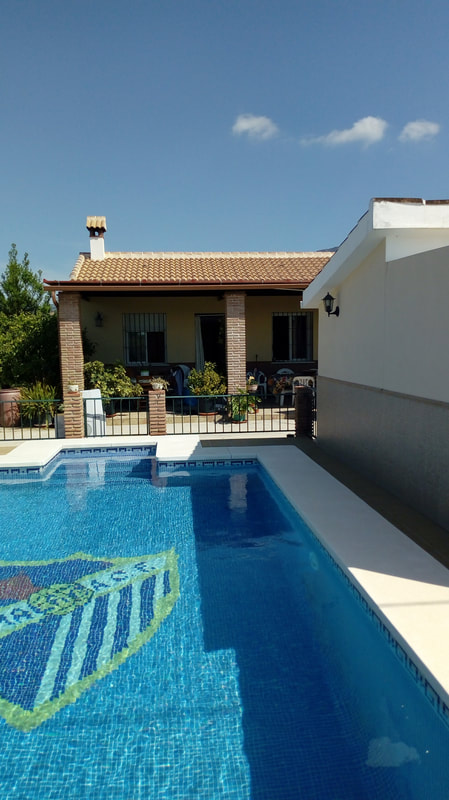
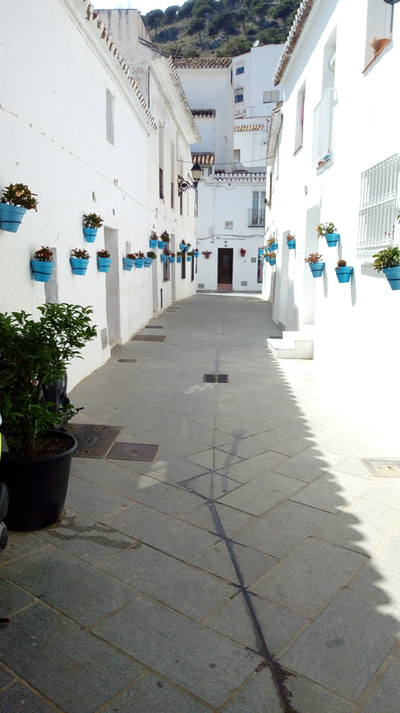
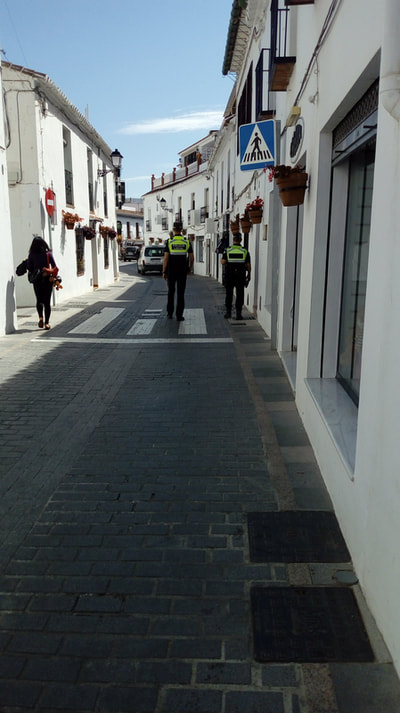
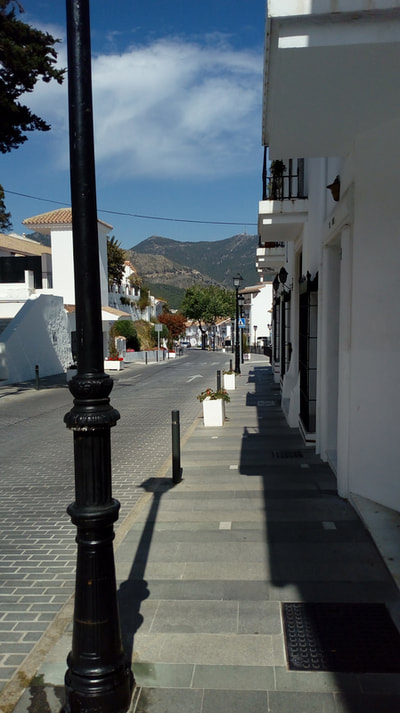
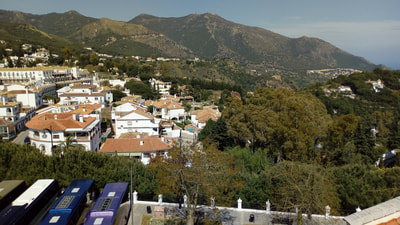
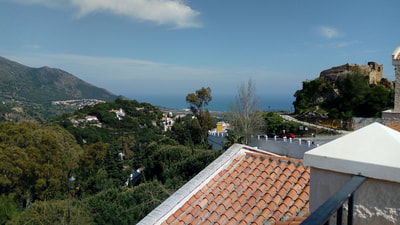
 RSS Feed
RSS Feed
